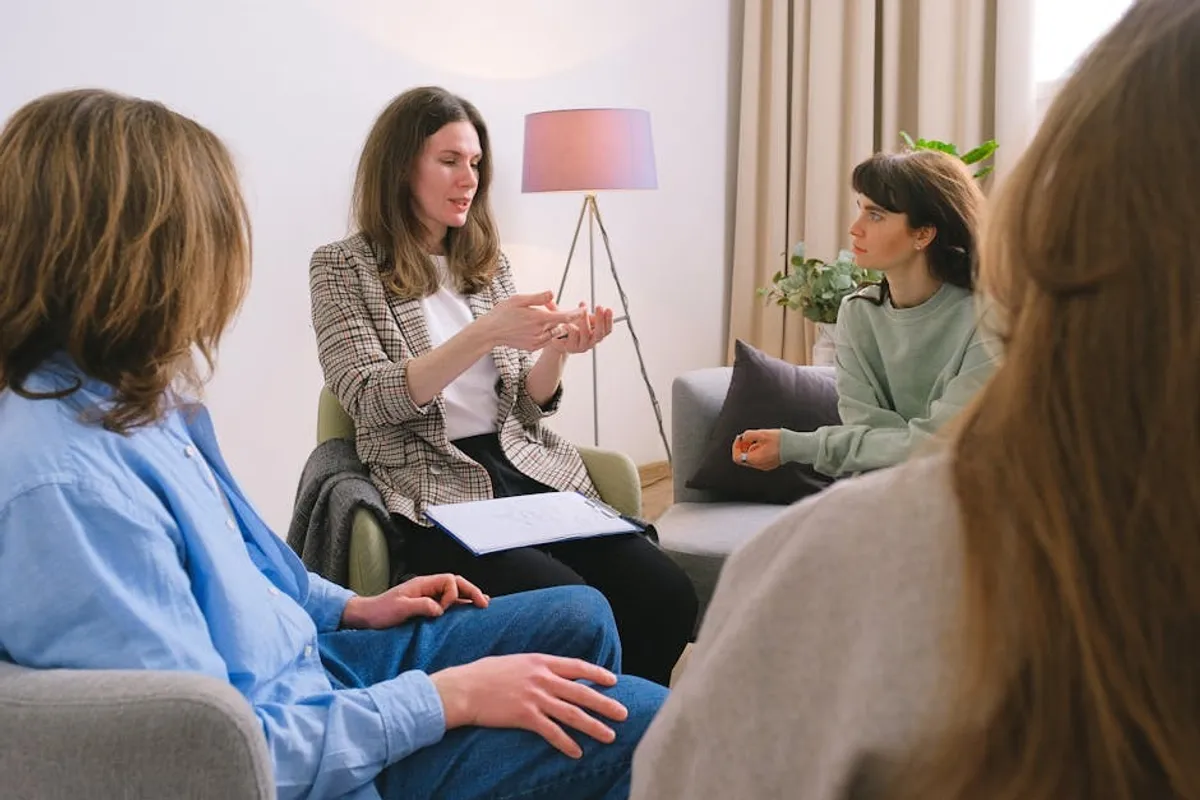Everyone experiences challenges and difficult moments during recovery from substance use disorder (SUD). Maintaining positive mental health is an important part of healing and personal growth. Group and individual therapy provide people in recovery with a safe space to work through different challenges they encounter. Studies have shown that he natural propensity of human beings to congregate makes group therapy a powerful therapeutic tool for treating substance abuse, one that is as helpful as individual therapy, and sometimes more successful." The Redpoint Center uses evidence-based and alternative holistic therapies to help clients recover from substance abuse.
What Are the Benefits of Group and Individual Therapy?
Everyone has different needs during treatment for substance use disorder. Therapy is a cornerstone of addiction recovery. Therapeutic interventions help clients identify and achieve recovery goals, repair relationships, and find healthier ways to address maladaptive thoughts or behaviors.
Some of the benefits of participating in group or individual therapy include:
- Improved social skills
- Reduced risk of relapse
- Enhanced social support
- Decreased overall stress
People are often more confident in their ability to establish and maintain sobriety if they feel fully engaged in their own recovery. Taking back control of their lives by directing their own care helps clients gain self-awareness and improve self-esteem. Therapy provides people with a space where they collaborate closely with clinicians and peers. Individual or group therapy allows people to feel heard, supported, and understood. The positive social connections people make with individual therapists or peers in a group support recovery.
Healing from substance abuse is a process. Many people go through multiple levels of care and may even continue to attend individual or group therapy for months or years after completing treatment. Clients with co-occurring SUD and mental health disorders often find therapy helpful in reframing how they think about themselves, others, and their circumstances.
How Does Group and Individual Therapy Impact Treatment for Substance Abuse?
Individual and group therapy sessions allow people to discuss their hopes, concerns, and beliefs about their condition with others who understand or share similar life experiences. Most individuals diagnosed with SUD have at least one co-occurring mental health disorder impacting their recovery. Therapy sessions are an excellent way to address all active disorders simultaneously. At The Redpoint Center, individual and group therapy sessions are tailored to the needs of participants.
Therapy impacts treatment for substance abuse by doing the following:
- Reducing internalized stigmas and negative self-talk
- Improving social skills and personal relationships
- Increasing the effectiveness of prescription medications and other treatments
Peer engagement during group therapy is often helpful for people who have experienced traumas related to substance abuse. Being able to communicate with others who have similar life experiences may reduce feelings of guilt, shame, or fear.
Learning Social and Coping Skills
Everyone goes through moments where they feel overwhelmed, out of control, or helpless. Individuals with substance use disorder may find it more difficult to cope with those moments. Experiencing chronic or acute stress may trigger intrusive thoughts, cravings, and other symptoms of SUD. Learning healthy social and coping skills ensures people have the tools to reduce the impact of stress on their physical and mental health.
Some of the coping and social skills taught in rehabilitation programs include:
- Effect communication
- Conflict resolution
- Creative problem solving
- Setting clear boundaries
- Grounding techniques
- Mindfulness-based techniques and exercises
Individuals in therapy also learn to create strong support systems they can rely on during crisis moments. A support system includes people capable of providing emotional or practical support to someone in recovery. Often, support systems include therapists, doctors, support staff, friends, and family members.
What to Expect From Group and Individual Therapy
Every group and individual therapy session is unique and tailored to the needs of the participants. However, most people who attend therapy during treatment for substance abuse and co-occurring mental health issues do the following:
- Learn about their condition and how it may impact various aspects of their lives
- Develop essential coping tools
- Create relapse and crisis management strategies
- Discuss thoughts, beliefs, and feelings related to addiction, recovery, and day-to-day life
- Share life experiences with others
According to Frontiers in Psychology, The therapeutic process in psychotherapy is aimed at facilitating clients' capacity to approach, recognize and reflect upon challenging life issues with openness and authenticity." Increasing self-awareness and learning to overcome challenges helps people feel more comfortable maintaining sobriety outside of treatment.
A Safe Space for Self-Expression and Peer Engagement
Peer engagement facilitates personal growth and makes developing healthy connections with others easier during early recovery. Often, individuals with substance use disorder feel isolated from family members or peers due to their unusual circumstances. Spending time with peers who share similar life experiences may help people feel more comfortable opening up and asking for support during challenging moments. The Redpoint Center uses peer support to improve the effectiveness of individual and group therapy.
Therapy is essential to treatment for most individuals recovering from substance abuse. Spending time with peers or one-on-one with a therapist allows people to explore different aspects of their recovery in a safe and non-judgmental space. Therapy teaches people essential coping skills and helps clients gain self-confidence. Recovery is a process. Group and individual therapy provides clients with the tools to manage their condition and successfully transition into aftercare. The Redpoint Center ensures clients and their loved ones have the resources to maintain positive lifestyle changes established during treatment. The care team collaborates closely with clients to ensure a smooth transition from a structured treatment program to aftercare therapy and support services. To learn more, call (303) 219-0973.
